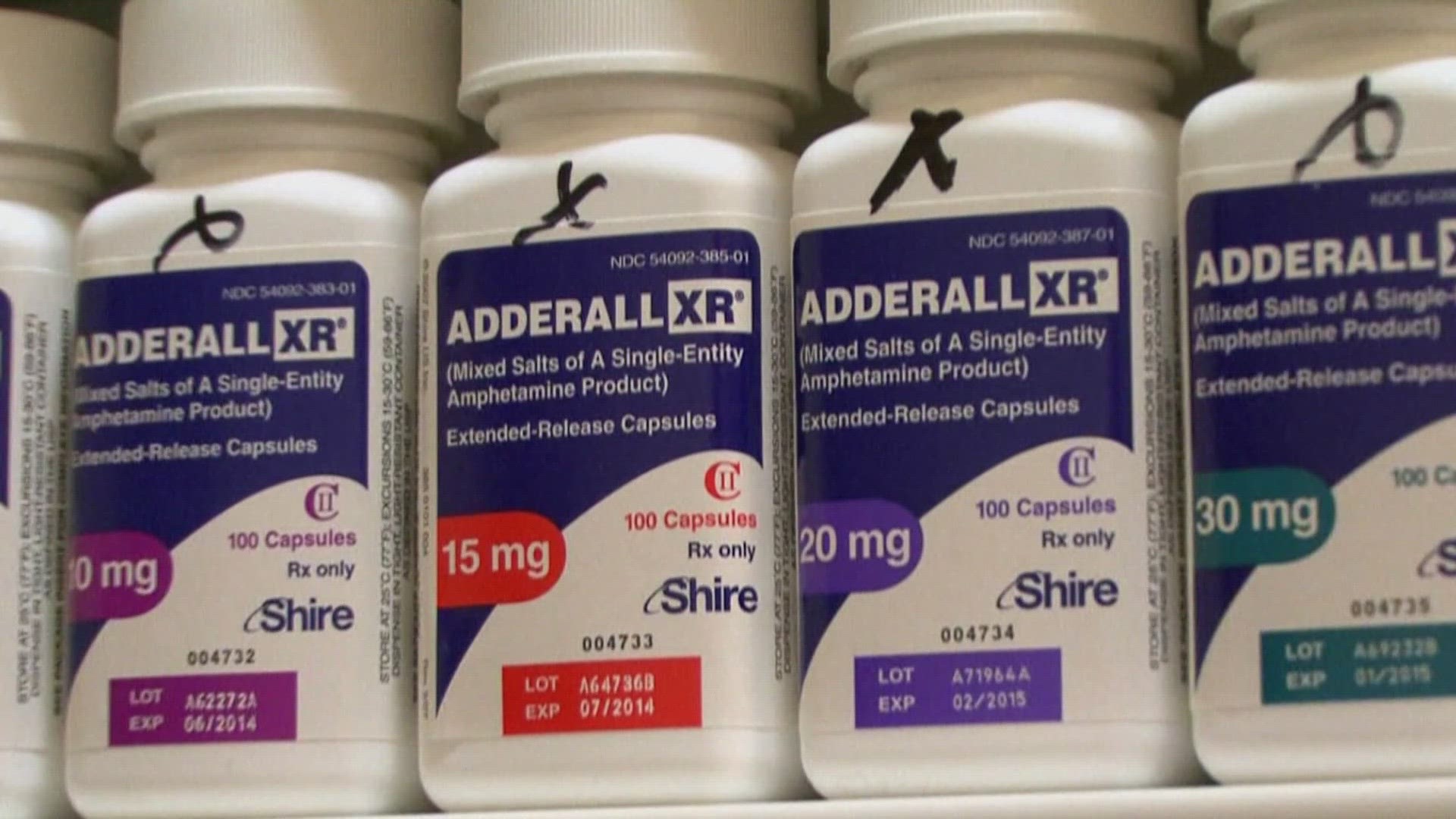PORTLAND, Maine — In what was initially projected as a short-lived shortage, the scarcity of the widely prescribed ADHD drug, Adderall, has now stretched far beyond expectations.
According to the FDA, this predicament was anticipated to last only a few months. However, as October approaches, it will mark an entire year since the medication has been on backorder.
Even more concerning, recent reports indicate that the shortage has taken a turn for the worse, with manufacturers citing maxed-out production capabilities.
Experts have weighed in on the situation, shedding light on a critical factor contributing to the Adderall shortage: the Drug Enforcement Administration's (DEA) set quota for the year.
The DEA regulates controlled substances, and their aim is to prevent overproduction and misuse. While this is a vital aspect of drug control, it has left many individuals without their much-needed medication.
Eva Montagne, a patient who has been prescribed Adderall for five years, shared her experience: "When I first heard there was a shortage, it was just with the normal Adderall capsules. But then it became everything adjacent to it as well."
Eva relies on Adderall to navigate her day, explaining, "It's how I am able to get through my day. I have seen dramatic increases in performance, but now it feels like I have to ration it. I don't take it every day; I have to look at my week ahead of time to decide when I will need it most because there is no way to get it in Portland."
Over the last nine months, Eva has only managed to secure five refills and had to switch pharmacies three times.
She emphasized, "If you were to take a look at the days I've used it over the last six months, there is no routine to it. With prescriptions, if you don't take it on a regular schedule, it affects you differently."
Even generic versions of Adderall are in short supply, prompting healthcare professionals to seek alternative treatments for ADHD.
Matt Marston, a pharmacist with Northern Light Health, explained, "It could be that even the generic form of that medication is in shortage because it crosses the line of all the manufacturers that produce that product."
The COVID-19 pandemic and the rise of telehealth have led to an increase in people seeking prescriptions for ADHD medications. Marston noted, "It's difficult to say whether it's an increase in misuse or an increase in access to help."
This surge was not reflected in this year's DEA quota.
The Maine Pharmacy Association shared, "I think everyone is hoping we may begin to see some relief soon, but with school starting back up, I expect we'll have a lot of families in tough situations trying to find their medications."
We reached out to the three major pharmacy chains in the state for their take on the situation. CVS and Hannaford responded, stating that they are actively working with physicians to identify alternate prescriptions for patients to cope with the shortage. As of now, Walgreens has not provided a response.

